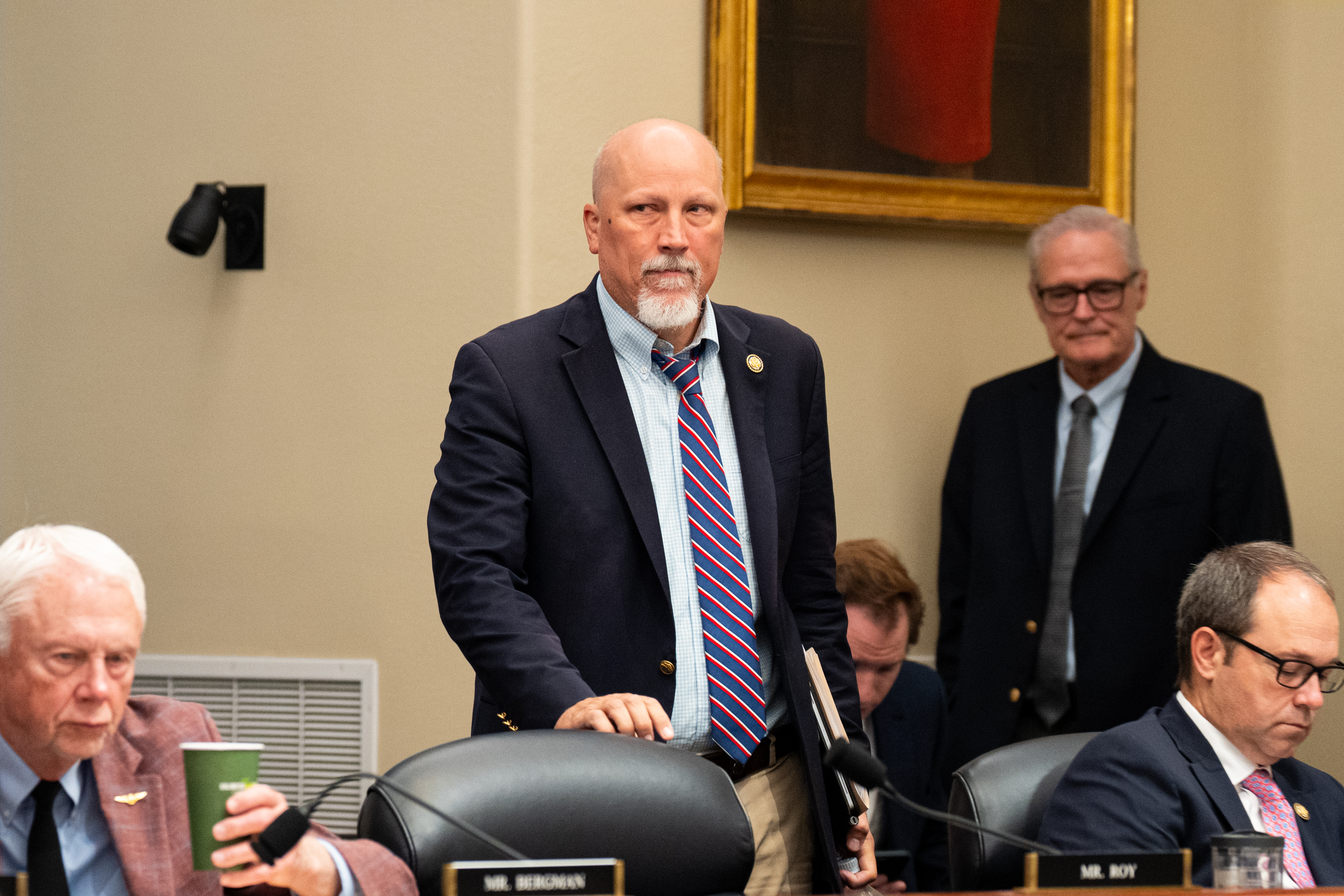SALT Tax Break: NY Republicans Reject "Insulting" Offer!
New York Republicans Stand Firm: SALT Tax Break Offer Deemed 'Insulting'
Introduction: The SALT Showdown Heats Up
The battle over the State and Local Tax (SALT) deduction is far from over, folks! What started as a seemingly straightforward tax issue has turned into a high-stakes political showdown, especially for Republicans in high-tax states like New York. Four prominent New York Republicans recently issued a scathing joint statement, rejecting what they called an "insulting" offer from House Speaker Mike Johnson and House Ways and Means Committee Chair Jason Smith regarding the expansion of the SALT deduction. This rejection throws a major wrench into the GOP's plans to advance their tax agenda. Let's dive into the details and see what's causing all the fuss.
The Players: Who's Who in the SALT Saga?
Before we get into the nitty-gritty, let's identify the key players:
- Reps. Elise Stefanik, Andrew Garbarino, Nick LaLota, and Mike Lawler: The four New York Republicans leading the charge for a meaningful SALT deduction expansion.
- House Speaker Mike Johnson: The Republican leader of the House, trying to navigate a delicate situation.
- Rep. Jason Smith: The Chairman of the House Ways and Means Committee, responsible for tax legislation.
- Donald Trump: Whose 2017 tax law is at the heart of the SALT deduction controversy.
The Stakes: Why Does the SALT Deduction Matter So Much?
The SALT deduction allows taxpayers to deduct certain state and local taxes from their federal income taxes. But, the 2017 tax law imposed a $10,000 cap on these deductions, disproportionately affecting residents of high-tax states like New York, New Jersey, and California. For many middle-class families in these states, this cap significantly increased their tax burden. That's why lifting or modifying the cap is a crucial issue for lawmakers representing these areas.
The Offer: What Was So "Insulting" About It?
Specific details of the offer haven’t been publicly released. However, the strong language used by the New York Republicans – calling it "insulting" – suggests it fell far short of their expectations. It likely didn't provide substantial relief to their constituents, or perhaps it came with unacceptable conditions or trade-offs. We can only speculate, but their reaction speaks volumes. Was it a band-aid solution when a major surgery was needed? Was it all bark and no bite? Whatever it was, it was a non-starter for these four representatives.
The Margin for Error: Why This Matters for the GOP
With a razor-thin majority in the House, Republicans can't afford to lose many votes on party-line bills. The article states they can only afford to lose three. The firm opposition of these four New York Republicans significantly complicates matters for House leadership. Can they find a compromise that satisfies these lawmakers without alienating other members of their caucus? That's the million-dollar question.
High-Tax States: Why They're at the Center of the Debate
States like New York, New Jersey, and California generally have higher state and local taxes than other parts of the country. This is often due to a combination of factors, including higher property taxes, income taxes, and sales taxes. The SALT deduction cap has effectively penalized residents of these states, as they can no longer fully deduct their state and local tax burdens.
The Impact on Constituents: Who Feels the Pinch?
The $10,000 SALT cap primarily affects middle- and upper-middle-class families who itemize their deductions. These are homeowners who pay significant property taxes, as well as those who pay state and local income taxes. For many of these families, the cap has resulted in a substantial increase in their federal tax liability. Imagine finally buying your dream home only to be blindsided by a new tax burden!
Political Fallout: What Happens Next?
The rejection of this offer could have several implications:
Potential Stalling of Tax Bill
The GOP's tax bill could be delayed or even fail to pass the House if a compromise isn't reached.
Intensified Negotiations
We can expect further negotiations between the New York Republicans and House leadership. Both sides have a vested interest in finding a solution.
Increased Pressure on Johnson and Smith
The spotlight is now on Johnson and Smith to come up with a proposal that can garner enough support within their caucus.
The 2017 Tax Law: A Divisive Legacy
The 2017 tax law, officially known as the Tax Cuts and Jobs Act, remains a contentious piece of legislation. While it lowered the corporate tax rate and made other changes to the tax code, the SALT deduction cap has been a particularly controversial aspect, especially in high-tax states.
Compromise Scenarios: What Could a Solution Look Like?
Several compromise scenarios are possible:
Raising the SALT Cap
Increasing the cap to a higher level, such as $15,000 or $20,000.
Exempting Certain Taxes
Exempting certain types of state and local taxes, such as property taxes, from the cap.
Income-Based Phase-Out
Phasing out the SALT deduction for higher-income taxpayers.
Sunsetting the Cap
Agreeing to let the SALT cap expire after a certain period of time.
The Republican Dilemma: Unity vs. Constituent Needs
The SALT deduction issue highlights a fundamental dilemma for Republicans: balancing party unity with the needs of their constituents. While some Republicans may be hesitant to raise the SALT cap, fearing it will benefit wealthier taxpayers, others recognize the importance of providing relief to their constituents in high-tax states. It's a political tightrope walk!
The Democratic Perspective: What's Their Role?
Democrats generally oppose the SALT cap and support restoring the full deduction. However, they may also use the issue as leverage to push for other priorities, such as increased funding for social programs. Can they play spoiler, or can they work with Republicans to craft a bipartisan solution? That remains to be seen.
Long-Term Implications: What's the Future of SALT?
The future of the SALT deduction remains uncertain. It's likely to be a major issue in future tax debates and political campaigns. The outcome of this battle could have significant consequences for taxpayers in high-tax states and for the overall political landscape.
Beyond Taxes: The Bigger Picture
The SALT deduction fight isn't just about taxes; it's about representation, fairness, and the relationship between the federal government and the states. It's a microcosm of the larger political divisions in our country.
Conclusion: A Taxing Situation, Indeed
The rejection of the SALT deduction offer by these New York Republicans underscores the deep divisions within the GOP on this issue. It also highlights the challenges facing House leadership as they try to advance their tax agenda. With a narrow majority and strong opinions on both sides, finding a compromise won't be easy. This is a story we'll be following closely. The key takeaways: The SALT deduction is crucial for residents in high-tax states. The GOP has a narrow margin for error. A compromise is necessary, but the details remain elusive. The future of the SALT deduction is uncertain.
Frequently Asked Questions (FAQ)
Here are some frequently asked questions about the SALT deduction:
-
What is the SALT deduction?
The SALT deduction allows taxpayers to deduct certain state and local taxes from their federal income taxes.
-
Why is there a cap on the SALT deduction?
The $10,000 cap was introduced as part of the 2017 Tax Cuts and Jobs Act. Lawmakers intended to offset the cost of other tax cuts in the bill by limiting this deduction.
-
Who is most affected by the SALT cap?
Residents of high-tax states, such as New York, New Jersey, and California, who itemize their deductions are most affected.
-
What are some proposed solutions to the SALT cap issue?
Proposed solutions include raising the cap, exempting certain taxes, implementing an income-based phase-out, and sunsetting the cap altogether.
-
Where can I learn more about the SALT deduction?
You can find more information on the IRS website, as well as from reputable tax professionals and news sources.


